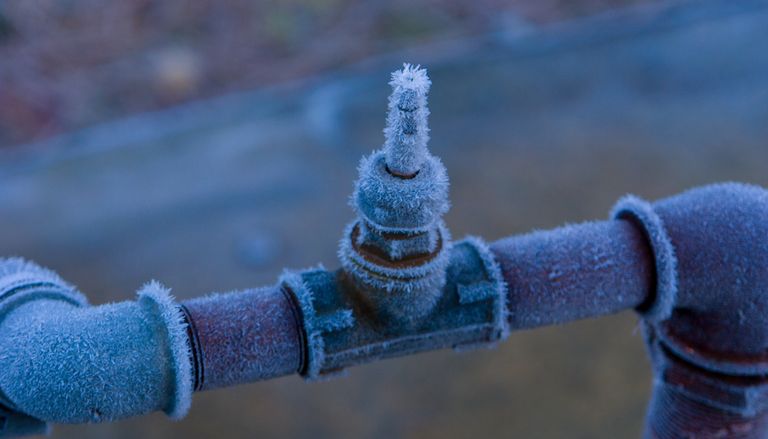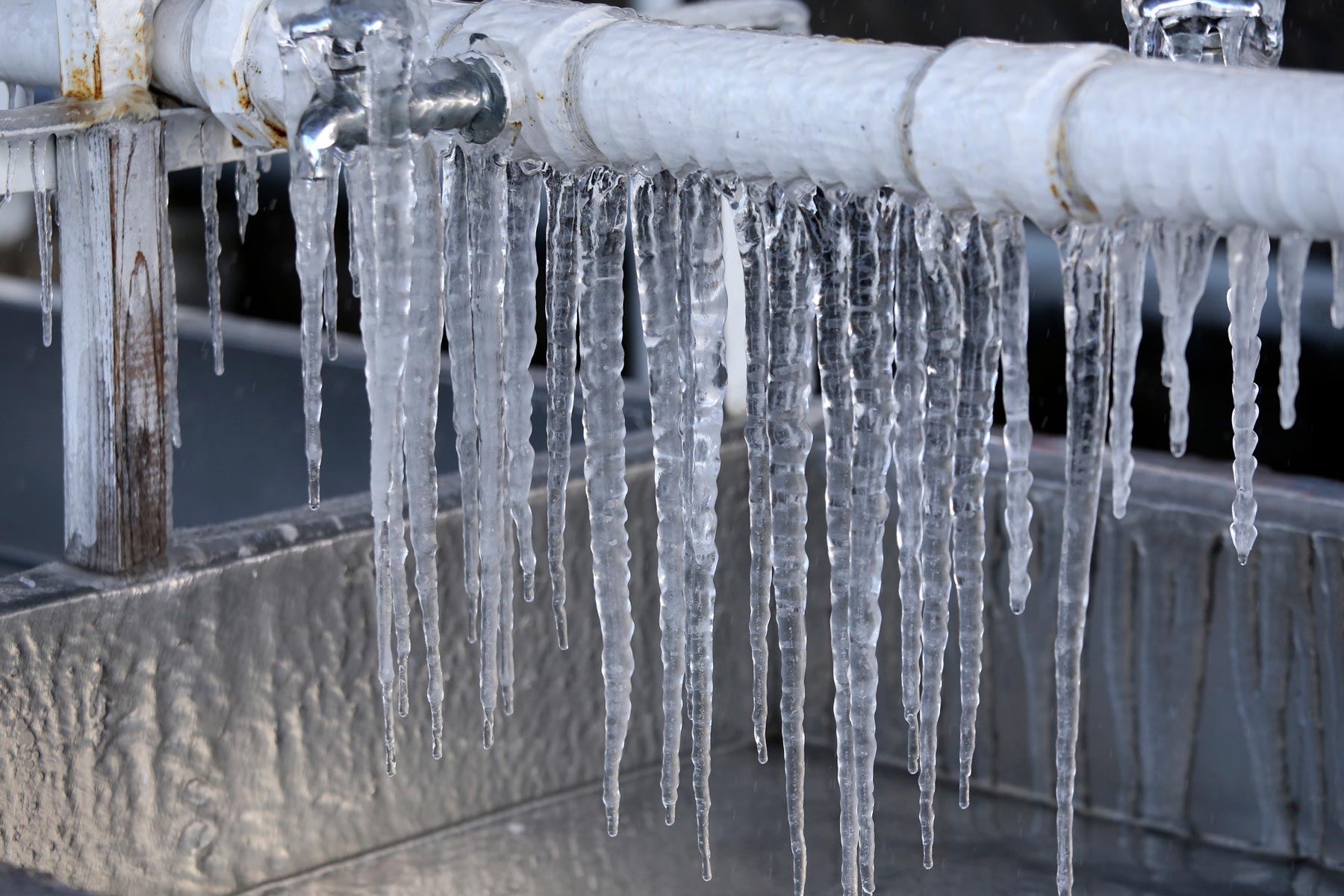What're your thoughts and feelings about Helpful Tips to Prevent Frozen Pipes this Winter?

Winter can damage your pipes, specifically by freezing pipelines. Right here's exactly how to avoid it from happening and what to do if it does.
Introduction
As temperature levels decrease, the danger of frozen pipelines increases, potentially bring about costly fixings and water damages. Recognizing exactly how to avoid icy pipelines is crucial for house owners in chilly climates.
Prevention Tips
Protecting vulnerable pipelines
Cover pipes in insulation sleeves or use warmth tape to shield them from freezing temperatures. Concentrate on pipelines in unheated or outside areas of the home.
Heating techniques
Maintain indoor areas properly warmed, specifically areas with plumbing. Open up cabinet doors to permit cozy air to flow around pipelines under sinks.
Just how to determine icy pipes
Search for decreased water flow from taps, unusual odors or noises from pipelines, and visible frost on revealed pipes.
Long-Term Solutions
Structural modifications
Consider rerouting pipes away from exterior walls or unheated areas. Include added insulation to attic rooms, basements, and crawl spaces.
Upgrading insulation
Purchase high-grade insulation for pipelines, attic rooms, and walls. Proper insulation assists preserve consistent temperature levels and minimizes the risk of icy pipelines.
Safeguarding Outside Pipes
Yard hoses and outside faucets
Disconnect and drain pipes garden hoses before wintertime. Install frost-proof spigots or cover outside faucets with insulated caps.
Comprehending Icy Pipelines
What triggers pipes to ice up?
Pipes freeze when exposed to temperatures listed below 32 ° F (0 ° C) for prolonged durations. As water inside the pipelines freezes, it increases, putting pressure on the pipe wall surfaces and potentially creating them to rupture.
Dangers and damages
Frozen pipelines can cause water disruptions, residential or commercial property damages, and pricey repair work. Ruptured pipes can flooding homes and cause comprehensive structural damage.
Indicators of Frozen Water Lines
Recognizing icy pipelines early can prevent them from bursting.
What to Do If Your Pipelines Freeze
Immediate activities to take
If you believe frozen pipelines, keep faucets open up to alleviate pressure as the ice thaws. Make use of a hairdryer or towels taken in hot water to thaw pipelines slowly.
Verdict
Preventing frozen pipes calls for proactive procedures and quick reactions. By comprehending the reasons, signs, and preventive measures, home owners can shield their pipes throughout cold weather.
Helpful Tips to Prevent Frozen Pipes this Winter
UNDERSTANDING THE BASICS: WHY PIPES FREEZE AND WHY IT’S A PROBLEM
Water freezing inside pipes is common during the winter months, but understanding why pipes freeze, and the potential problems it can cause is crucial in preventing such incidents. This section will delve into the basics of why pipes freeze and the associated problems that may arise.
THE SCIENCE BEHIND FROZEN PIPES
When water reaches freezing temperatures, it undergoes a physical transformation and solidifies into ice. This expansion of water as it freezes is the primary reason pipes can burst. As the water inside the pipe freezes, it expands, creating immense pressure on the walls. If the pressure becomes too great, the pipe can crack or rupture, leading to leaks and water damage.
FACTORS THAT CONTRIBUTE TO PIPE FREEZING
Low Temperatures: Extremely cold weather, especially below freezing, increases the risk of pipes freezing. Uninsulated or Poorly Insulated Pipes: Pipes located in unheated areas, such as basements, crawl spaces, or attics, are more prone to freezing. Insufficient insulation or lack of insulation altogether exacerbates the problem. Exterior Wall Exposure: Pipes running along exterior walls are susceptible to freezing as they encounter colder temperatures outside. Lack of Heating or Temperature Regulation: Inadequate heating or inconsistent temperature control in your home can contribute to frozen pipes. PROBLEMS CAUSED BY FROZEN PIPES
- Pipe Bursting: As mentioned earlier, the expansion of water as it freezes can cause pipes to burst, resulting in significant water damage.
- Water Damage: When pipes burst, it can lead to flooding and water damage to your property, including walls, ceilings, flooring, and personal belongings.
- Structural Damage: Prolonged exposure to water from burst pipes can compromise the structural integrity of your home, leading to costly repairs.
- Mold and Mildew Growth: Excess moisture from water damage can create a favorable environment for mold and mildew growth, posing health risks to occupants.
- Disrupted Water Supply: Frozen pipes can also result in a complete or partial loss of water supply until the issue is resolved.
WHY CERTAIN PIPES ARE MORE PRONE TO FREEZING
- Location: Pipes located in unheated or poorly insulated areas, such as basements, crawl spaces, attics, or exterior walls, are at higher risk of freezing.
- Exterior Pipes: Outdoor pipes, such as those used for irrigation or exposed plumbing, are particularly vulnerable to freezing as they are directly exposed to the elements.
- Supply Lines: Pipes that carry water from the main water supply into your home, including the main water line, are critical to protect as freezing in these lines can affect your entire plumbing system.
- Underground Pipes: Pipes buried underground, such as those connected to sprinkler systems or outdoor faucets, can be susceptible to freezing if not properly insulated.
https://busybusy.com/blog/helpful-tips-to-prevent-frozen-pipes-this-winter/

I'm just very fascinated by How To Avoid Freezing Pipes and I'm hoping you appreciated the new page. Are you aware of somebody else who is interested by the subject? Please feel free to promote it. Many thanks for your time invested reading it.
Schedule Your Job Now